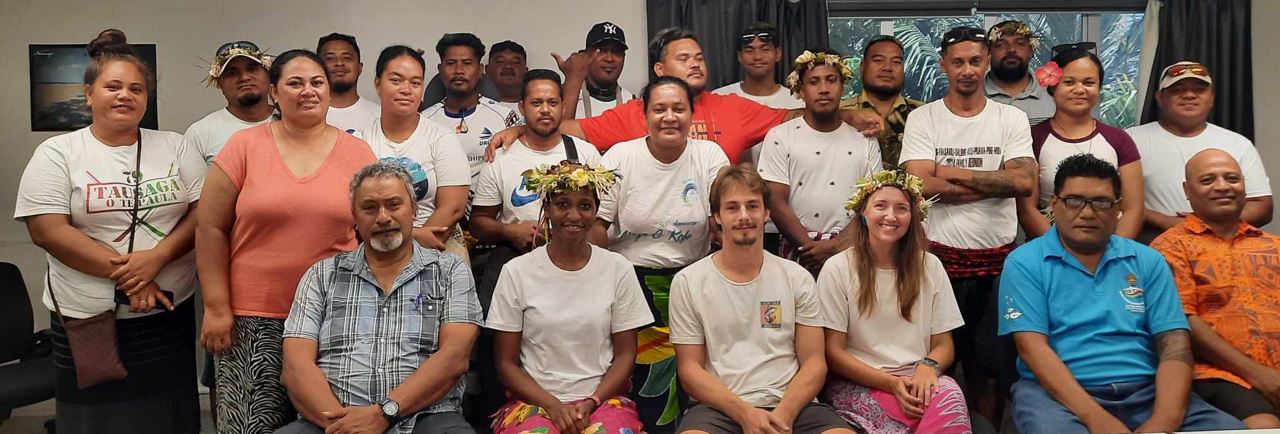 In a significant step towards advancing fisheries data collection practices, a comprehensive IKASAVEA application training was conducted over a two-week period in the Tuvalu Fisheries Conference Room. The training, facilitated by FAME-SPC Officers Sebastian and Hannah, accompanied by the Coastal Consultant, Aimee, catered to Outer Island Data Collectors, Community Fisheries Officers, and Fisheries Officers.
In a significant step towards advancing fisheries data collection practices, a comprehensive IKASAVEA application training was conducted over a two-week period in the Tuvalu Fisheries Conference Room. The training, facilitated by FAME-SPC Officers Sebastian and Hannah, accompanied by the Coastal Consultant, Aimee, catered to Outer Island Data Collectors, Community Fisheries Officers, and Fisheries Officers.
The primary objective of the training was to enhance the quality and efficiency of fisheries data collection, encompassing both fish and invertebrates. Participants were exposed to a meticulously crafted curriculum comprising theory sessions and practical exercises, ensuring a well-rounded understanding of the IKASAVEA application.
The Tuvalu Fisheries Conference Room served as the central venue for knowledge dissemination and skill development during this intensive program. Sessions were strategically designed to equip participants with the necessary insights into utilizing the IKASAVEA application effectively, with a focus on improving data accuracy and collection methodologies.
A notable aspect of the training involved practical sessions conducted at various landing sites, providing participants with hands-on experience in real-world scenarios. This approach not only reinforced theoretical concepts but also facilitated the application of acquired knowledge in practical field situations.
Hannah, one of the lead facilitators, emphasized the critical role of precise data collection in effective fisheries management. “Good data collection is paramount for informed decision-making and sustainable fisheries management. The skills acquired during this training will undoubtedly contribute to elevating the standards of data collected in our fisheries,” she stated.
The initiative received generous sponsorship from the Pacific European Union Marine Partnership (PEUMP), underscoring their commitment to promoting best practices in fisheries management within the region. This collaboration enabled the seamless execution of the training program, providing participants with access to cutting-edge tools and methodologies.
As the training concluded, participants expressed their gratitude for the opportunity to enhance their skills and contribute to the enhancement of fisheries data collection practices in Tuvalu. The successful completion of this program signifies a significant stride towards aligning Tuvalu with global standards in fisheries data management and sustainability.
